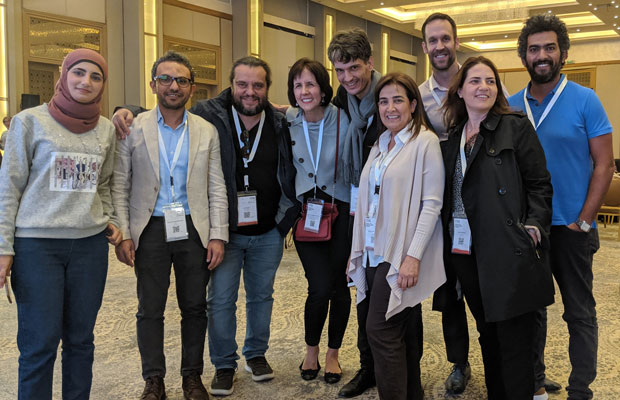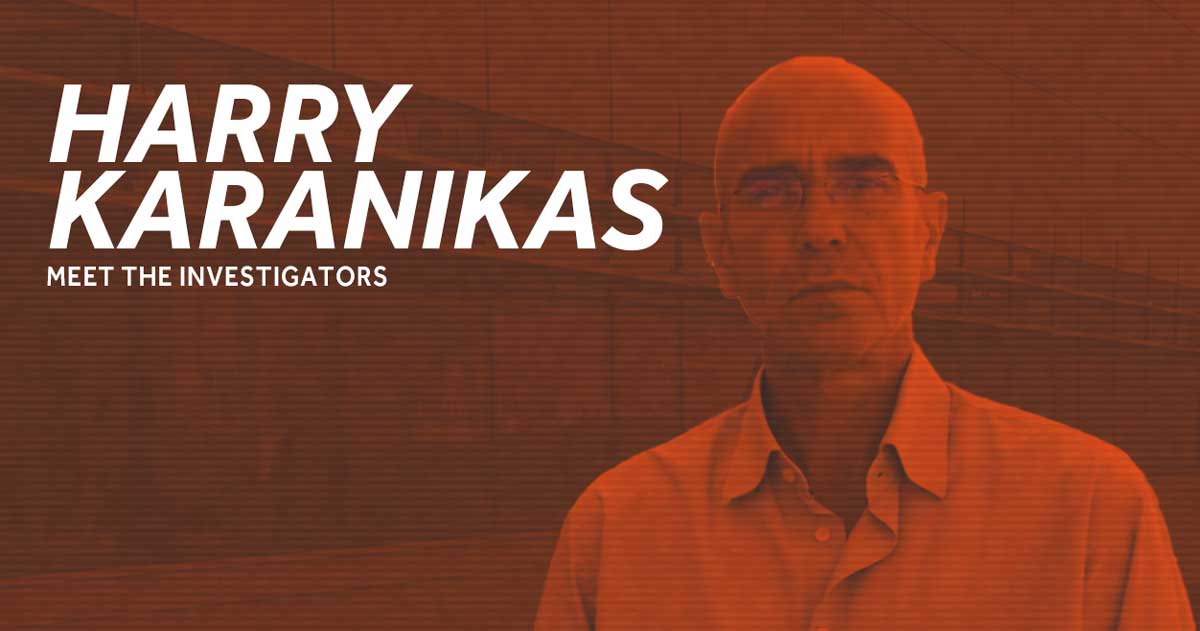The International Consortium of Investigative Journalists collaborates with hundreds of members across the world. Each journalist is among the best in their country and have won national and global awards. Our monthly series, Meet the Investigators, highlights the work of these tireless journalists.
This month, we speak with Mohammed Komani, an investigative reporter from Yemen who worked for 12 years in Sanaa as a freelancer and with the Yemen News Agency. Komani moved to Jordan in 2016 where he is now the data editor at Arab Reporters for Investigative Journalism. Follow him on Twitter here.
What is the investigation you are most proud of?
The first investigation I am especially proud of uncovered the corruption of a Yemeni oil company and its managers.
One day after the investigation was published, the general manager was replaced. In a country like Yemen, it is rare to have a real impact because of corrupt networks that cover all corners of the state.
Initially, I did not have access to enough documents to publish the investigation, so I worked on a strategy of finding those who were fired from the company. I struggled to get their trust, but in the end, they helped me obtain additional documents and access other sources.
How did I do it? I made a list of employees from the last five years. I chose 25 names of people who worked in the legal and contracts departments of the oil company. Then I researched to know who had a good reputation and who was fired during the period I was focused on. For three months, I struggled to convince them to talk. I bothered them a lot with persistent calls and visits during which I explained how important it is to expose the corruption that we know is present. Eventually, some of them came to trust me and helped open the necessary doors for me to conduct my investigation.
The second investigation that I am extremely proud of was a cross-border investigation with colleagues in the United Kingdom, Norway and Egypt on the murder of a Norwegian student in London by a young Yemeni man 10 years ago. Shortly after the murder, the man fled to Yemen. After 10 years of trying to get answers from the suspect and his family, we finally got a response, even if it was not enough to bring the suspect to justice.
You work as ARIJ’s data editor. What does that involve?
The main objective of my role is to develop ideas related to data with Arab journalists who can work on them, to supervise them and help them complete these investigations. It involves collaborating with our partners, such as ICIJ, on cross-border projects, and helping disseminate data journalism among Arab journalists by training them on tools, data investigation techniques and helping find data sources related to their countries.
Recently, I was a part of a project between the International Center for Journalists and the Google News Initiative. I trained hundreds of Arab journalists on data tools, verification and storytelling.
What are the tools that usually get a “Wow!” response during these trainings?
The data tools that usually surprise journalists the most are Google Public Data Explorer and Flourish.
What’s the state of data in Yemen or countries in the Middle East generally?
The kind of data that is available is just general, and not customized, data. To do our work, we need the data that is unavailable.
Although right to information laws exist, they are not active in most countries in the Middle East and North Africa, including Yemen, Jordan and Tunisia. These laws are mainly just for media consumption. For example, when submitting a request for access to information often you receive one of these answers: refusal to receive the request for access to information, denial of knowledge of the information (meaning that the information is not available), an apology for providing information without sufficient reasoning, or that what is available is what is on the site of the institution, and a refusal to update data or provide further information.
Once, in Yemen, I asked a government agency for information that was already published online, just to see if they would carefully respond to my request or simply provide a typical answer. The agency told me, “Sorry, we can’t provide you with this information as it is sensitive.”
What are tips you have for reporters who want to know how to find useful data or information on people or companies in Yemen or other countries in the Middle East?
Obtaining information on people and companies in the Middle East, including Yemen, is very difficult, especially for those who do not speak Arabic.
There are ways for foreign reporters to search and obtain information in the Middle East, especially datasets in some countries in the Middle East that are available online. But there isn’t enough data out there and it is difficult for non-Arabs to search. Each website differs and some websites require a subscription to search company registries.
I would advise any reporter interested in searching Middle Eastern company databases to contact ARIJ’s Data Center. We will help in the research and provide information on companies and people in English.
Two good websites for foreign reporters looking into the Middle East are the companies website in Jordan and the company registry in Lebanon.
What are some of the challenges working as a reporter in the Middle East?
Security, legal and financial.
Security challenges include the threat of arrest and prosecution, which is difficult to withstand, especially in countries without laws protecting journalists and where there is no free press. I was called a traitor when I published an investigation about ex-president Ali Saleh and his sons and how they moved money in breach of United Nations sanctions.
Legal challenges predominantly include the absence of access to information laws, the criminalization of the collection and dissemination of data and the existence of loopholes in laws across many countries that consider the journalist a traitor or conspirator if they work on sensitive issues.
After the so-called “Arab Spring” revolutions, journalists became aware of the importance of exposing corruption. This is what will make journalism in the Middle East excel to its full potential.
Lack of financial resources is a challenge, especially when it comes to expenses needed for a journalist working on an investigation for months or even a year, without coverage or financial return. It limits the journalist’s creativity and focus and his or her ability to be fully devoted to the investigation.
We’ve just finished the ARIJ19 conference. What was the most valuable insight or lesson you took from the conference?
I was able to speak to journalists from all over the world. I made sure that as journalists we believe in our abilities and join hands to work together to create a meaningful press and to truly be the voice of the voiceless, and a voice for our societies that live under injustice, corruption and indifference to people’s rights.
What was one of your favorite ARIJ stories from 2019?
A story from Lebanon called Motherhood Denied about mothers who lose custody of their children in divorce proceedings. What makes the story one of my favorites is that the reporter built the database from scratch.
We hear a lot about challenges for journalists in the Middle East. But what is one thing that makes you optimistic about investigative journalism in the region?
There are so many journalists that are eager to work on investigations, detect corruption and prosecute the corrupt in a bid to fix the defects in the systems.
The interest of international institutions in supporting and training journalists in the Middle East to help them develop their skills and work professionally will help them know how to work on dangerous topics in a bad press environment and in dangerous places.
After the so-called “Arab Spring” revolutions, journalists became aware of the importance of exposing corruption. This is what will make journalism in the Middle East excel to its full potential.



